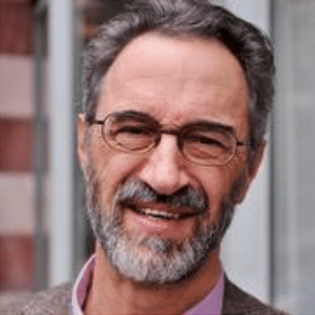
Princeton Kauffman Conference 2017 home | Agenda | Materials
Click a name to read their biography and survey responses.
Howard Aldrich

Howard Aldrich, Kenan Professor of Sociology
University of North Carolina
Email: howard_aldrich@unc.edu
Howard E. Aldrich is Kenan Professor of Sociology; Adjunct Professor of Business at the University of North Carolina, Chapel Hill; Faculty Research Associate at the Department of Strategy & Entrepreneurship, Fuqua School of Business, Duke University; and Fellow, Sidney Sussex College, Cambridge University. His main research interests are entrepreneurship, entrepreneurial team formation, gender and entrepreneurship, and evolutionary theory. Among his over 200 publications are seven books, one of which -- Organizations Evolving won two national awards: the George R Terry Award from the Academy of Management and the Max Weber Award of the American Sociological Association.
Survey Questions
Best possible personal outcome from the conference?
Dozens of graduate students decide to do ethnographies of startups!
Biggest research challenge you're facing?
Can conference attendees help with it?
The trade off between depth of observations at a small # of sites versus large enough sample size to create valid generalizations. Attendees could help with 'cover stories' about how to justify small N observational studies.
In what specific way can the conference best facilitate your research career?
Not really.
What aspects of businesses creation, or entrepreneurship, should receive priority from the research community? Why?
Startup team dynamics. Too much of what we now "know" is anecdotal.
What do you understand to be the most significant limitations and strengths of ethnographic research, as applied to business creation/entrepreneurship?
In-depth info about the startup process.
Ken Anderson
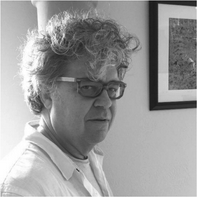
Ken Anderson, Principal Engineer
Intel Corp
Email: kenanderson@mac.com
Ken Anderson is a Principal Engineer at Intel, where he has been innovating around the social-technical for the past 15 years. Ken spends a good portion of his time in field research to observe, document, and analyze the rich tapestry of everyday life. At Intel, he started up the first Energy Lab, provided the basis for Intel’s Turbo product, and created guidance and opportunities around M&As. Currently, he is researching technologies and cultural values around autonomous transportation systems. Along with Tracey Lovejoy, he is co-founder of EPIC People. His work has appeared in wide range of publications including computer, anthropology, and business journals.
Survey Questions
Best possible personal outcome from the conference?
A conclusion that is not “more research,” a grant application, or a book. Perhaps a new consultancy is formed.
Biggest research challenge you’re facing? Can conference attendees help with it?
Getting investor companies to engage with ethnographic research.
In what specific way can the conference best facilitate your research career?
Broader exposure audiences and means of representation.
What aspects of businesses creation, or entrepreneurship, should receive priority from the research community? Why?
Creating frameworks for robust action.
What do you understand to be the most significant limitations and strengths of ethnographic research, as applied to business creation/entrepreneurship?
Bad ethnography. There are no business standards on what is good ethnography. Poor quality will undermine overall value.
Mark Beam

Mark Beam, Maverick in Residence
Kauffman Foundation
Mark Beam is the maverick in residence in Entrepreneurship for the Ewing Marion Kauffman Foundation, where he is working to create a Maverick in Residence Program for the Foundation and direct convening and engagement for Entrepreneurship. Prior to joiningthe Kauffman Foundation, Beam co-designed and co-developed Halloran Philanthropies, a pioneering international philanthropic and impact investment organization. Beam earned a Bachelor of Science in business, a Master of Business Administration and his Juris Doctor from Creighton University. He is the author of the forthcoming book, INTEGRITY: The Search for ME in the Age of We.
Amar Bhidé
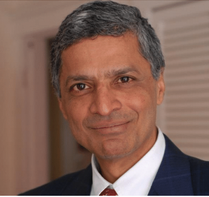
Amar Bhidé, Professor
Fletcher School of Law and Diplomacy
Email: amar@bhide.net
Amar Bhidé, who is now researching the nature of practical knowledge and medical innovation, has been studying innovation and entrepreneurship for over twenty-five years. He has several publications in the areas of strategy, finance and firm governance. His ten Harvard Business Review articles include “How entrepreneurs craft strategies that work,” and “Bootstrap Finance: the Artof Start-ups.” His work on financial markets and governance includes articles in the Journal of Financial Economics and the Journal of Applied Corporate Finance. He has written numerous articles in the Wall Street Journal, The New York Times, BusinessWeek, Forbes, the Financial Times and The LA Times.
Survey Questions
Best possible personal outcome from the conference?
Learn something new about ethnographic methods.
Biggest research challenge you’re facing? Can conference attendees help with it?
Integrating a vast array of loosely related ideas about Medical Innovation and Practical Knowledge into some semblance of coherence.
In what specific way can the conference best facilitate your research career?
Don’t really know, but just talking to people and listening to ideas that I would not normally encounter often helps.
What aspects of businesses creation, or entrepreneurship, should receive priority from the research community? Why?
Shifting from broad, untenable propositions to practical problems in defined contexts (e.g. how to get a bank loan, sell complex products and services).
What do you understand to be the most significant limitations and strengths of ethnographic research, as applied to business creation/entrepreneurship?
Extremely useful in getting useful insights about practical problems.
Ralph Bolton
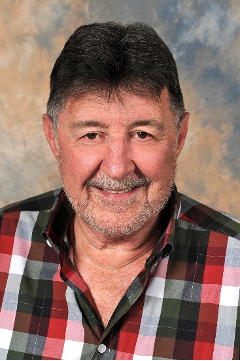
Ralph Bolton, Professor at Pomona College
President of the Chijnaya Foundation
Email: professorbolton@aol.com
Ralph Bolton, Cornell PhD, is Emeritus Professor of Anthropology at Pomona College and President of The Chijnaya Foundation, a nonprofit engaged in community development in the Peruvian highlands. He is the author or editor of more than 20 books, most of them focusing on Andean cultures. Among the honors he has received for his work are the Franz Boas Award for Exemplary Service to Anthropology from the American Anthropological Association, the Sargent Shriver Award for Distinguished Humanitarian Service, from the National Peace Corps Association, and an Honorary Doctorate from the National University of the Altiplano, Puno, Peru.
Survey Questions
Best possible personal outcome from the conference?
As head of an NGO, I am looking to learn how to evolve the organization from an all-volunteer institution to one that is sustainable with a small professional staff.
Biggest research challenge you’re facing? Can conference attendees help with it?
Funding is the biggest challenge I face as the founder of a small nonprofit. I could use help on how to do research on funding options and opportunities to sustain our projects.
In what specific way can the conference best facilitate your research career?
Given our emphasis on obtaining a superb portfolio of accomplishments on our projects, my organization has not engaged in much research per se, but we recognize the need for independent evaluations of outcomes. Time and money issues have prevented us from engaging sufficiently in this kind of research.
What aspects of businesses creation, or entrepreneurship, should receive priority from the research community? Why?
Perhaps it would be useful to focus on efforts to explain why some projects fail and others succeed. This is where ethnography can help to improve outcomes.
What do you understand to be the most significant limitations and strengths of ethnographic research, as applied to business creation/entrepreneurship?
In most cases, the most serious limitation associated with ethnographic research is the time it takes to be done right. To be of value it needs to be done right. I don't regard "rapid assessment" approaches to be adequate. The greatest strength is that the information generated by ethnography should form the basis of any entrepreneurial activity; lack of good information can be fatal, leading to wasted time, money and hopes.
Ben Bradley
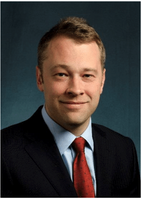
Ben Bradley, Senior Program Manager
Kauffman Foundation
Email: bbbradley@kauffman.org
Ben Bradley is a senior program manager in Entrepreneurship for the Ewing Marion Kauffman Foundation in Kansas City, Missouri. Prior to joining the Kauffman Foundation, he was the director of business development at PBS NewsHour in Washington, D.C., where he worked on revenue strategy and advised on corporate communications. His previous professional experience includes digital communications work at The Pew Charitable Trusts. He also worked at The Atlantic, where he managed the theatlantic.com and developed content for the live events division. He completed a Bachelor of Arts degree in government from Dartmouth College in 2005, graduating magna cum laude.
Survey Questions
Best possible personal outcome from the conference?
A better understanding of the potential (and limits) of ethnography as it applies to entrepreneurial research.
Biggest research challenge you’re facing? Can conference attendees help with it?
I work on the programmatic side, not the research side, but I would volunteer whether/how/to what extent entrepreneurship education and training helps entrepreneurs achieve better business outcomes.
In what specific way can the conference best facilitate your research career?
It can expose me to talented researchers!
What aspects of businesses creation, or entrepreneurship, should receive priority from the research community? Why?
I defer to my colleagues in research, but I'm most interested in team dynamics/peer relationships as they relate to entrepreneurial outcomes.
What do you understand to be the most significant limitations and strengths of ethnographic research, as applied to business creation/entrepreneurship?
I am attending this conference to learn about those limitations. I look forward to it.
Elizabeth Briody

Dr. Elizabeth K. Briody, Founder and Principal
Cultural Keys, LLC
Email: Elizabeth.briody@gmail.com
Elizabeth K. Briody, Ph.D., has been involved in cultural-change efforts for over 30 years. She is founder and principal of Cultural Keys LLC, helping organizations transform their culture. Recent clients are in health care, consumer products, and service industries. She is Co-PI on a 5-year NSF grant to “revolutionize” how engineering is taught. She worked two decades at General Motors R&D, most recently as Technical Fellow. Recent books include The Cultural Dimension of Global Business (2017) and the award-winning Transforming Culture (2014). She is Past President, National Association for the Practice of Anthropology, and recent Board Member, American Anthropological Association.
Survey Questions
Best possible personal outcome from the conference?
Identifying a group of people interested in working on a research proposal together.
Biggest research challenge you're facing? Can conference attendees help with it? How?
I think it would be good to pair academic researchers with ethnographers together (regardless of disciplinary background) and get them thinking about proposals to Kauffman and/or other funders.
In what specific way can the conference best facilitate your research career?
I would be interested in working with others on the specifics of a proposal combining ethnographic methods with other social science methods.
What aspects of businesses creation, or entrepreneurship, should receive priority from the research community? Why?
I think ethnography should receive priority given that much of the entrepreneurship literature has primarily used survey methods.
What do you understand to be the most significant limitations and strengths of ethnographic research, as applied to business creation/entrepreneurship?
Like any field work, it takes time, perseverance, contacts, access, etc. No one hands you an interview on a silver platter. But, therein lie the strengths of ethnography: the hard work pays off. You build wonderful relationships, you learn important, relevant, and sensitive things about people, and you developan understanding about how entrepreneurship works for different groups.
Leigh Buchanan
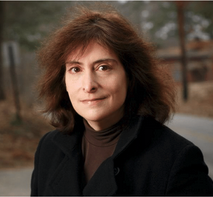
Leigh Buchanan, Editor
Inc. Magazine
Email: lbuchanan@inc.com
Leigh Buchanan is an editor at large for Inc. Magazine, where she covers entrepreneurship, leadership, innovation, and regulation. A former editor at Harvard Business Review, she was also a founding editor of WebMaster magazine, the first national publication about Internet business. She has an MA in English from the University of Pennsylvania and a BS in Journalism from Northwestern University.
Mary Odell Butler
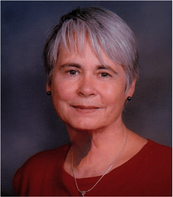
Mary Odell Butler, Consulting Anthropologist
University of Maryland
Email: maryobutler@verizon.net
Mary Odell Butler (PhD, Temple University, 1978). Positions Held: Adjunct Professor of Anthropology, University of Maryland (2007-present); Adjunct Professor of Anthropology, University of North Texas (2011-present); Senior Research Associate, Westat (2011-present); Research Leader, Battelle Memorial Institute (1988-2007); Interests or Activities: AAA Nominations Committee, 2016-present; AAA Committee of Practicing, Applied and Public Anthropology (CoPAPIA), Chair 2014; member (2011-2013): Member, AAA Section Assembly Executive Board (2009-2011); President, National Association for the Practice of Anthropology (2008-2010); Significant Publications: “Evaluation: A Cultural Systems Approach Left Coast Press” (2015); Applying Anthropology in the Global Village (Ed. With Christina Wasson and Jacqueline Copeland Carson 2012).
Survey Questions
Best possible personal outcome from the conference?
Better understanding of the role of anthropology in entrepreneurship. I know a lot about the practice of anthropology but am less certain of entrepreneurs in practice.
Biggest research challenge you’re facing? Can conference attendees help with it? How?
At present, preparing young anthropologists in universities to build career plans from the beginning of their training. As a practitioner, I am a program evaluator.
In what specific way can the conference best facilitate your research career?
I'm pretty far on in my career but I anticipate that this conference will help me mentor more insightful.
What aspects of businessescreation, or entrepreneurship, should receive priority from the research community? Why?
Understanding markets and marketing. This was a mystery to me when I entered practice. The whole idea of selling has a bad taste in academia. We need to teach this.
What do you understand to be the most significant limitations and strengths of ethnographic research, as applied to business creation/entrepreneurship?
Interesting question. The strength is easy. You learn things you won't any other way. The weakness is all too often failure to do sound science in ethnography. Both ethnographers and their teammates need to distinguish ethnography from anecdotes.
Douglas Caulkins

D. Douglas Caulkins, Emeritus Professor
Grinnell College
Email: caulkins@grinnell.edu
D. Douglas Caulkins graduated with Honors and Distinction in Sociology and Anthropology from Carleton College, Northfield, Minnesota, in 1962. Joined the Anthropology Department at Grinnell College in 1970. He completed a Ph.D. in Anthropology at Cornell University in 1982. He published on voluntary organizations, social capital, and typical careers in small Norwegian communities before taking a faculty internship with the Congressional Office of Technology Assessment on a project on Innovation and Regional Economic Development. There he launched an ethnographic research project on high technology entrepreneurs in peripheral regions of the United Kingdom. He and Anne Jordan coedited Companion to Organizational Anthropology.
Eliana Crosina
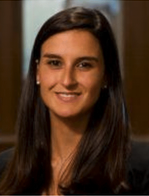
Eliana Crosina, PhD Candidate
Boston College
E-mail: crosina@bc.edu
Eliana Crosina is Doctoral Candidate in the Management and Organization Department at Boston College. She holds a Bachelor of Science in Business Administration and a Master in Business Administration from Babson College as well as a Master of Science in Organization Studies from Boston College. Her current research interests center on issues of identity and work space in entrepreneurial contexts. She tackles these issues through largely qualitative methods in two main research streams: (1) exploring identity development and organizing among nascent entrepreneurs; (2) examining novel processes of identity work.
Survey Questions
Best possible personal outcome from the conference?
Networking; feedback on my research; identifying potential collaborators, as well as funding opportunities.
Biggest research challenge you’re facing? Can conference attendees help with it?
Be perceived as “legitimate,” especially among quantitatively-oriented entrepreneurship scholars.
In what specific way can the conference best facilitate your research career?
Help me identify additional opportunities to present my work / give visibility to my research.
What aspects of businesses creation, or entrepreneurship, should receive priority from the research community? Why?
Founding (early stage new venture creation processes) - there is very little qualitative research that explains mechanisms in this area.
What do you understand to be the most significant limitations and strengths of ethnographic research, as applied to business creation/entrepreneurship?
Strengths: can help unveil what, to this date, are under-theorized mechanisms; has the potential to add depth and richness to our current understanding of new business creation; Limitations: can be time consuming (when done well); access may be hard to gain/negotiate; may be a risky path to pursue for a junior scholar (due to its time-consuming nature/current job market expectations).
Per Davidsson
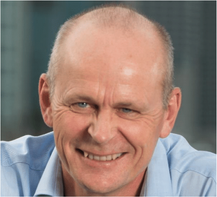
Per Davidsson, Professor
Queensland University of Technology
Email: per.davidsson@quat.edu.au
Per Davidsson is Director & Talbot Family Foundation Professor in Entrepreneurship at the Australian Centre for Entrepreneurship Research (ACE), at Queensland University of Technology. He is an authority on the topics of nascent entrepreneurship, firm growth, and entrepreneurship research methods. Elected Chair of the Entrepreneurship Division of the Academy of Management and Associate editor for Journal of Business Venturing, Entrepreneurship Theory & Practice, and Small Business Economics. He has consulted for privatecompanies as well as the Swedish Minister of Industry, and his research has attracted the attention of organizations such as the EU Commission and the US Bureau of Labor Statistics.
Survey Questions
Best possible personal outcome from the conference?
Productive involvement in a trailblazing, international-collaborative research program; learning more about where ethnography stands in business studies today and how ethnographers “think.”
What aspects of businesses creation, or entrepreneurship, should receive priority from the research community? Why?
The PROCESS of new venture creation; conceptualization of different types of venture creation processes and parts thereof; methods and techniques for collecting, organizing and analyzing venture creation process data.
What do you understand to be the most significant limitations and strengths of ethnographic research, as applied to business creation/entrepreneurship?
As per my paper: the length of the process and “the nature of entrepreneurial work” may make ethnographies of individual entrepreneurs ineffective for studying venture creation processes. Ethnography may have great potential for studying “life and human interaction in entrepreneurial environments” such as incubators, accelerators and online communities doing (ethnography or whatever). Poor quality will undermine overall value.
David Deeds

David Deeds, Professor
The University of St. Thomas
Email: david.deeds@gmail.com
David Deeds is the Schulze Professor of Entrepreneurship and director of the Morrison Center. Dr. Deeds is a founder and current Editor-in-Chief of the Entrepreneurship and Innovation Exchange. Deeds is a former professor at the University of Texas at Dallas School of Management and academic director of the Institute for Innovation and Entrepreneurship. He was awarded the NASDAQ Fellowship in Capital Formation and was a named research fellow at Stockholm School of Entrepreneurship. In 2007, Deeds was awarded the Haniel Fellowship in Entrepreneurship at Humboldt University in Berlin, Germany. His current research interests include new venture growth and adaptation, technological discontinuities and technology commercialization.
Survey Questions
Best possible personal outcome from the conference?
Deeper knowledge of ethnography.
Biggest research challenge you're facing? Can conference attendees help with it? How?
Time, and no.
In what specific way can the conference best facilitate your research career?
Provide interesting ideas and discussion.
What aspects of businesses creation, or entrepreneurship, should receive priority from the research community? Why?
The transition from emergence to high growth. The ventures that make the leap change the world, but they are few.
What do you understand to be the most significant limitations and strengths of ethnographic research, as applied to business creation/entrepreneurship?
I don't know enough to answer the question.
Frédéric Delmar

Frédéric Delmar, Clinical Associate Professor
Lund U. School of Economics and Management
Email: Frederic.delmar@fek.lu.se
Frédéric Delmar is the associate vice dean of the School of Economics and Management at Lund University. He is also a professor in entrepreneurship at the Sten K. Johnson Centre for Entrepreneurship. Prior to his current appointment, he has hold positions at EMLYON Business Scholl, France; Stockholm School of Economics and Stockholm University, Sweden. He is recognized as a leading scholar in entrepreneurship research. His main research interest lies in the early development of new ventures as well as new venture growth. He has been researching entrepreneurship for twenty years and worked as an expert for the OECD and EU.
Survey Questions
Best possible personal outcome from the conference?
Understanding better how ethnographic studies can contribute to entrepreneurship, especially two parts, venture creation by teams, and growth of new firms.
Biggest research challenge you’re facing? Can conference attendees help with it?
Understanding how multiple levels affect each other over time, leading to huge complexity in understanding and explaining entrepreneurship.
In what specific way can the conference best facilitate your research career?
New ideas on how to introduce the complexity of the entrepreneurial processes, while still providing abstract level knowledge that is actionable.
What aspects of businesses creation, or entrepreneurship, should receive priority from the research community? Why?
I have a strong interest in new venture teams as they are increasingly important to start-ups and represent very complex social entities.
What do you understand to be the most significant limitations and strengths of ethnographic research, as applied to business creation/entrepreneurship?
Time spent doing field studies and then extracting knowledge out of an idiosyncratic and complex reality.
Lisa Di Carlo
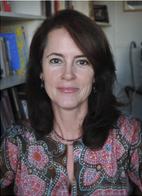
Lisa Di Carlo, Anthropologist and Lecturer
Brown University
Email: lisa_dicarlo@brown.edu
Before coming to Brown in 2012, Professor Lisa Di Carlo taught at Babson College (2001-2011). An anthropologist by training, her research interests center on the migration of people and ideas, most recently at the intersection of innovation and social entrepreneurship. She is the author of Migrating to America: Transnational Social Networks and Regional Identity among Turkish Migrants (IB Tauris 2008). Her research focuses on the Mediterranean region in general and Turkey in particular. She is currently developing a course on ethical supply chain management and the role of ethnographic research methods in compliance auditing.
Survey Questions
Best possible personal outcome from the conference?
Connecting with other researchers for possible collaboration. Learning about research funding.
Biggest research challenge you’re facing? Can conference attendees help with it?
How to make a contribution as an anthropologist.
In what specific way can the conference best facilitate your research career?
By helping me identify a potential audience or output for my work.
What aspects of businesses creation, or entrepreneurship, should receive priority from the research community? Why?
Equitable access to business creation and entrepreneurial ventures. See Ernesto Sirolli’s TED talk.
What do you understand to be the most significant limitations and strengths of ethnographic research, as applied to business creation/entrepreneurship?
Strength: Ethnographic research is a powerful medium for understanding contexts of every kind. It has the potential to reveal important steps in the venture creation decision-making processes that determine how individuals proceed or abandon hope. Limitations: Quantitative, statistic-yielding research happens to be more popular because it is easier to digest and to take at face value. It is also quicker and less expensive to produce data with quantitative research.
Kenneth Erickson

Kenneth C. Erickson, Clinical Assistant Professor
University of South Carolina
Email: ken.erickson@moore.sc.edu
Kenneth C. Erickson, Ph.D. is an applied anthropologist and full-time clinical faculty member in the Department of International Business in the Darla Moore School of Business, University of South Carolina. Erickson works with International MBA students who conduct ethnographic fieldwork projects focused on small business; he has developed a new graduate course in Business Anthropology. Erickson teaches International Marketing to MBA students in a joint USC/Chonnam University Professional MBA program, and teaches International Business to professional MBA students from the University of Missouri. He published Doing Team Ethnography: Warnings and Advice (Sage 1997). Ken is presently working on ethnographic research among arts and crafts entrepreneurs.
Survey Questions
Best possible personal outcome from the conference?
Meet new colleagues, discover new ideas/issues to explore, identify possible funding for research.
Biggest research challenge you’re facing? Can conference attendees help with it? How?
The biz research points in too many directions at once: what is a main critical thread, here? How are biz researchers and ethnographers asking the same, or different, questions?
In what specific way can the conference best facilitate your research career?
Networking with colleagues and identifying an ethnographic focus that broadens the utility of small-sample research.
What aspects of businesses creation, or entrepreneurship, should receive priority from the research community? Why?
Inclusion of very small businesses that do not want to grow, understanding institutional links/clashes e.g. state-owned enterprise and entrepreneurship in China.
What do you understand to be the most significant limitations and strengths of ethnographic research, as applied to business creation/entrepreneurship?
Limits: poorly understood among biz researchers; Strengths: can understand practice/performative nature of small enterprise, context rich.
Maryann Feldman
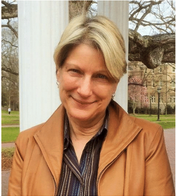
Maryann P. Feldman, Program Director
National Science Foundation
Email: mfeldman@nsf.gov
Maryann P. Feldman is currently director of the Science of Science and Innovation Policy program at the National Science Foundation. She is the Heninger Distinguished Professor in the Department of Public Policy at the University of North Carolina. Her research and teaching interests focus on the areas of innovation, the commercialization of academic research and the factors that promote technological change and economic growth. A large part of Dr. Feldman’s work concerns the geography of innovation –investigating the reasons why innovation clusters spatially and the mechanisms that support and sustain industrial clusters. Her dissertation, also published as a book, is The Geography of Innovation.
William Gartner

William Gartner, Professor
Copenhagen Business School & California Lutheran University
Email: William.b.gartner@gmail.com
William B. Gartner holds a joint appointment at California Lutheran University as Professor of Entrepreneurship and at Copenhagen Business School as Professor of Entrepreneurship and the Art of Innovation. He is the 2005 winner of the Swedish Entrepreneurship Foundation International Award for outstanding contributions to entrepreneurship and small business research. His recent book Entrepreneurship as Organizing: Selected Papers of William B. Gartner (2016) is published by Edward Elgar.
Survey Questions
Best possible personal outcome from the conference?
Meeting people who are doing research on what entrepreneurs do to start businesses.
Biggest research challenge you’re facing? Can conference attendees help with it?
Ways to get entrepreneurs to notice what they are doing and to report on those activities as much of what entrepreneurs do is unlikely to be observed, directly, by the ethnographer.
In what specific way can the conference best facilitate your research career?
Want to find out who is doing what – so, identifying the community of scholars interested in research on entrepreneurial behavior.
What aspects of businesses creation, or entrepreneurship, should receive priority from the research community? Why?
The specific actions of individuals over time and their processes of learning (or not) from their actions: actions under high levels of ambiguity.
Julia Haines

Julia Haines, UX Researcher
Google
Email: juliahaines@google.com
Julia Katherine Haines conducts research at the intersection of technology, innovation, and human practices. She is currently a User Experience Researcher at Google. She received her PhD in Informatics from the Donald Bren School of Information and Computer Sciences at University of California, Irvine, where she was also a fellow with the Intel Science & Technology Center for Social Computing. Her dissertation focused on startup accelerators and the decentralization of technology startups. She previously earned an MA in Social Sciences at The University of Chicago, and BAs in Anthropology and Journalism and Mass Communication (Visual Communication) at The University of North Carolina at Chapel Hill.
Survey Questions
Best possible personal outcome from the conference?
Learning about other ethnographic research in this space and making contacts to continue pushing this research forward.
Biggest research challenge you’re facing? Can conference attendees help with it?
The biggest research challenge I’m facing currently in my work is to understand how business models are/will be changing in the years to come.
In what specific way can the conference best facilitate your research career?
Helping network with others to potentially partner with on research.
What aspects of businesses creation, or entrepreneurship, should receive priority from the research community? Why?
Business model innovation. Even coming from a technology perspective, this is the biggest challenge, not the tech innovations themselves.
What do you understand to be the most significant limitations and strengths of ethnographic research, as applied to business creation/entrepreneurship?
Strengths: depth of insight; a holistic perspective; Limitations: generalizability; produce data with quantitative research.
Elizabeth Hansen
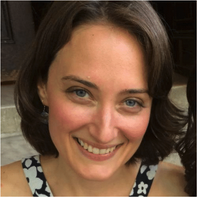
Elizabeth Hansen, Senior Research Fellow
Tow Center for Digital Journalism at Columbia University
Email: eh2733@columbia.edu
Elizabeth Hansen is a doctoral candidate in Organizational Behavior at Harvard Business School and a Senior Research Fellow at the Tow Center for Digital Journalism at Columbia University. Her research focuses on the organizational dynamics of digital innovation and institutional change. She has studied strategic change in digital advertising, the management of innovation in public media, the rise of podcasting as an open media format, and the evolving relationship between news publishers and social platforms. Elizabeth employs ethnographic, case study, and archival methods. She is also currently a fellow at the Berkman Center for Internet and Society at Harvard University.
Survey Questions
Best possible personal outcome from the conference?
New ideas for projects, connecting with potential collaborators, understanding the most pressing problems to be understood.
Biggest research challenge you're facing? Can conference attendees help with it? How?
Taking account analytically of both intra-organizational dynamics and shifting industry conditions.
In what specific way can the conference best facilitate your research career?
By helping me understand the open questions and puzzles in the fields of business creation and entrepreneurship that ethnography could help answer.
What aspects of businesses creation, or entrepreneurship, should receive priority from the research community? Why?
I am adjacent to those fields, so I don't have a strong sense. Personally I am interested in why there aren't more women entrepreneurs.
What do you understand to be the most significant limitations and strengths of ethnographic research, as applied to business creation/entrepreneurship?
The strength of ethnographic research is the particularity and granularity of its description of phenomenon. That is also the weakness since it can be hard to generalize from. Which means ethnographies of business creation are likely to be very context-specific.
Diana Hechavarria

Diana Hechavarria, Assistant Professor
University of South Florida
Email: dianah@usf.edu
Diana M. Hechavarria is an Assistant Professor of Entrepreneurship in the Muma College of Business at the University of South Florida. Diana investigates the various dynamics confronted by founders during the start-up process. Her research interests focus on how various social processes and institutional factors influence individuals when aiming to establish a new firm. Diana’s research has been published in journals such as Journal of Business and Entrepreneurship, and International Journal of Entrepreneurship and Innovation. Diana has a Ph.D. in Business Administration from University of Cincinnati, a M.A. in Liberal Studies from Florida International University, and a B.A. in Sociology from University of Florida.
Survey Questions
Best possible personal outcome from the conference?
Research collaboration opportunities.
Biggest research challenge you're facing? Can conference attendees help with it? How?
How to pitch my research as compelling to reviewers.
In what specific way can the conference best facilitate your research career?
Help me advance me towards tenure in terms of engaging in long term meaningful research projects.
What aspects of businesses creation, or entrepreneurship, should receive priority from the research community? Why?
New firm creation over time.
What do you understand to be the most significant limitations and strengths of ethnographic research, as applied to business creation/entrepreneurship?
Time consuming and hard to turn around with time constraints for junior faculty and tenure requirements.
Jacob Hellman
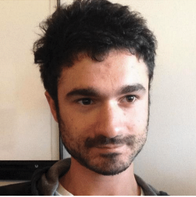
Jacob Hellman, PhD candidate
UC San Diego Communication
Email: jhellman@ucsd.edu
Jacob Hellman is a PhD candidate in Communication at UCSD, writing a dissertation on the sociocultural processes of startup investing, and how certain ideas, and not others, get positioned as potentially valuable. Jacob’s interests include political economy of communication, the cultural effects of new media, and science studies. He graduated magna cum laude in political theory from Oberlin College, and worked for a decade in Philadelphia doing energy conservation for low-income housing.
Survey Questions
Best possible personal outcome from the conference?
A better repertoire of techniques and structure of things to look for on site. And learn how scholars from the critical social sciences can talk with scholars & practitioners from business schools in a mutually beneficial way.
Biggest research challenge you're facing? Can conference attendees help with it? How?
Partly getting access (though this is something each research must work out themselves) --but also what actually to look for. Business activity often happens through email, individual cognition, private meetings, etc.
In what specific way can the conference best facilitate your research career?
Introduce me to whatever range of existing ethnographic approaches exists and help guide me to figure out what startup ethnography looks like, besides sitting in on pitch competitions and meetings.
What aspects of businesses creation, or entrepreneurship, should receive priority from the research community? Why?
The way that particular kinds of product/service ideas get made legible as investable --in particular, what counts as 'creating value,' in the context of the rise of social entrepreneurship as well as the easily-blurred boundary between financial value and socially-oriented value?
What do you understand to be the most significant limitations and strengths of ethnographic research, as applied to business creation/entrepreneurship?
Strengths: generating understanding about meanings get made out of social interactions & specific contexts; limitations --not sure, but I would like to know how the sorts of theoretical literatures I read (in soc & anthro) could inform & be informed by business school scholarship.
Rebecca Karp
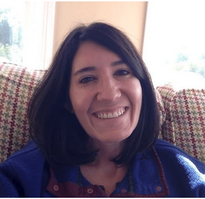
Rebecca Karp, PhD Student
Boston University
Email: rakarp@bu.edu
Rebecca Karp is currently a PhD student at Boston University expecting her degree in Management. Her research interest include Innovation, Economic Sociology, Organizational Theory, and Strategic Management and Work and Employment Dynamics. Her current research is being conducted with Siobhan O’Mahony, and is entitled, “Competing on a Common Platform: Explaining How Firm Strategies Evolve in Collectively Managed Ecosystems.”
Survey Questions
Best possible personal outcome from the conference?
Gaining a better understanding of how to conduct ethnographic research and participating in building a community.
Biggest research challenge you're facing? Can conference attendees help with it? How?
Dealing with neutrality at your field site - It would be great to get thoughts about how to remain neutral when the folks you are observing ask for help, advice and recommendations.
In what specific way can the conference best facilitate your research career?
Help create a deeper understanding of where the opportunities are to conduct ethnographic research.
What do you understand to be the most significant limitations and strengths of ethnographic research, as applied to business creation/entrepreneurship?
I think a limitation issue is dealing with identification issues or at least framing work to shift the conversation away from causal focus.
Suntae Kim
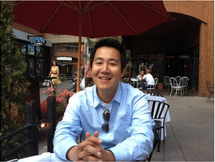
Suntae Kim, Assistant Professor
Boston College
Email: suntae.kim@bc.edu
Suntae Kim is an Assistant Professor of Management and Organization at Boston College’s Carroll School of Management. He studies diverse entrepreneurial endeavors towards an alternative to the contemporary capitalism. The contexts of his inquiry include new organizational forms for ‘triple bottom-line’ business, incubators for sustainable businesses, and a nationwide network for localized social innovators. His research appeared in outlets such as Annual Review of Sociology, Psychological Science, and Harvard Business Review Online. Suntae received his doctoral degree in Business Administration from University of Michigan, and master’s and bachelor’s degree from South Korea’s Seoul National University.
Survey Questions
Best possible personal outcome from the conference?
Further development of my current research projects; Getting more information about research/funding opportunities.
Biggest research challenge you're facing? Can conference attendees help with it? How?
Ethnography being a fringe method in the research of entrepreneurship – finding support and collectively building legitimacy together would be very beneficial.
In what specific way can the conference best facilitate your research career?
Finding a micro-community of like-minded researchers; getting specific feedback on my papers as well as publication process; having some guidance and mentorship on developing professional career.
What aspects of businesses creation, or entrepreneurship, should receive priority from the research community? Why?
The very early stage of business creation – idea gestation stage, because it is not only the critical stage that leaves important imprint in the future development of the business but also the stage where ethnography and in-depth qualitative engagement are best suited for.
What do you understand to be the most significant limitations and strengths of ethnographic research, as applied to business creation/entrepreneurship?
Lack of familiarity and legitimacy in the general field of entrepreneurship research; Excessive focus on long-term outcomes that ethnographic data collection often cannot cover; Potentially an economics-centric bias in entrepreneurship research where social, cultural, and institutional context is often considered secondary to individual entrepreneurs' ingenuity.an economics-centric bias in entrepreneurship research where social, cultural, and institutional context is often considered secondary to individual entrepreneurs' ingenuity
Jacqueline Kirtley

Jacqueline Kirtley, Assistant Professor
Boston University
Email: jkirtley@bu.edu
Jax is an Assistant Professor of Entrepreneurship in the Management Department at The Wharton School, University of Pennsylvania. She did her doctoral work in the Strategy & Innovation Department at Boston University's Questrom School of Business and was named a 2016 Kauffman Dissertation Fellow. Her research explores strategy and technology evolution in early stage entrepreneurial firms developing novel technology innovations from new knowledge. Her dissertation entitled: “How Strategy Evolves in Entrepreneurial Nascent Technology Firms” is a longitudinal field study of the strategy and technology product evolution at seven early stage energy and cleantech hardware firms.
Survey Questions
Best possible personal outcome from the conference?
Thoughts and confidence in analyzing ethnographic field data.
Biggest research challenge you're facing? Can conference attendees help with it? How?
I have a lot of data and am being a bit overwhelmed doing inductive analysis.
In what specific way can the conference best facilitate your research career?
I am interested in hearing how other people are doing their work and finding out what work is being done.
What aspects of businesses creation, or entrepreneurship, should receive priority from the research community? Why?
My personal interest is in very early stage entrepreneurship and strategy evolution. We talk about startups but quantitative studies cannot truly address the earliest embryonic stage of a firm.
What do you understand to be the most significant limitations and strengths of ethnographic research, as applied to business creation/entrepreneurship?
Limitation: time to do it well inside the confines of our profession. Strengths: with few and questionable measures of progress/success during the earliest stage of a firm, along with a lot of idiosyncrasies inherent in the uncertainty of entrepreneurship, in the field truly knowing the players and their experiences is the only way to develop theory on the subject.
Rena Lederman
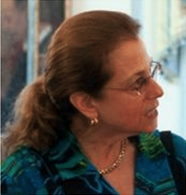
Rena Lederman, Professor
Princeton University
Email: lederman@princeton.edu
Rena Lederman (Professor of Anthropology, Princeton) has written on wealth exchange, gender, and sociopolitical relations in Papua New Guinea (e.g., What Gifts Engender 1986) and co-edited U California’s Melanesian Studies series, among other contributionsto Pacific ethnography. Her recent work compares research practices and ethics across human science disciplines: she has considered, for example, the impacts of longstanding one-size-fits-all research ethics regulation on ethnography (e.g., “Fieldwork double-bound” in Van den Hoonaard ed. 2016 The Ethics Rupture) and the impacts of funders’ expectations concerning “dataset” archiving given the divergent rationales governing archival research in humanities and social science fields (e.g., “Archiving fieldnotes?” in Sanjek ed. 2016).
Survey Questions
Best possible personal outcome from the conference?
Encountering unfamiliar people and ideas.
Biggest research challenge you're facing? Can conference attendees help with it? How?
My research concerns disconnections and misunderstandings among scholars and practitioners in different social science/humanities fields and paradigms. While this conference doesn't deal with any of that directly, indirectly, I expect to be enlightened.
What do you understand to be the most significant limitations and strengths of ethnographic research, as applied to business creation/entrepreneurship?
While I am not a scholar of entrepreneurship and business creation, my expertise relates directly to the general value-added of ethnographic research, the topic of my conference talk.
Kevin Lee

Kevin Lee, PhD Student
New York University
E-mail: klee2@stern.nyu.edu
Kevin Lee is a doctoral student in Management at New York University’s Stern School of Business. He is broadly interested in the sociology of work and organizations, with a particular focus on the changing nature of work, entrepreneurship, culture, and qualitative methods. Most recently, he has been co-authoring a paper with Damon Phillips, where they are inductively examining a unicorn startup’s intense scaling efforts and eventual flame-out. Kevin received an undergraduate degree from Columbia University in 2014 and worked as a management consultant on Wall Street before beginning his doctoral studies.
Survey Questions
Best possible personal outcome from the conference?
The best possible personal outcome from the conference would be meeting people that can help me as I continue with my research and work and getting feedback on my work as well.
Biggest research challenge you're facing? Can conference attendees help with it? How?
The biggest research challenge I'm currently facing is about how to effectively do ethnography within startup contexts. There are some unique challenges that ethnographers face within startups -- the informality of the organizations' structures, the rapidly changing cultures, etc. -- and hearing about how people are dealing with these unique challenges methodologically would certainly help. Even further, the literature on startups and entrepreneurship has only recently become more popular for business scholars, and hearing about how scholars navigate framing their papers would certainly be helpful.
In what specific way can the conference best facilitate your research career?
I thinking having the opportunity to talk one-on-one with senior scholars would be supremely helpful: to get their feedback on my work, to get them to know me as a scholar in the first place, and to hear about their work and career.
What aspects of businesses creation, or entrepreneurship, should receive priority from the research community? Why?
I think what ethnography offers is the opportunity to provide close and grounded accounts of how people make sense of their work and lives. As a result, I think ethnographers can contribute a significant amount in this respect to our understanding of business creation -- very little has actually been done to see the place that entrepreneurship and business creation plays in people's lives, how they make sense of it, and how they approach and deal with the difficulties associated with entrepreneurship. In turn, focusing on these issues could really help us to redesign our scholarly work to be more in line with what is actually happening in practice -- to contextualize the study entrepreneurship in the practices that are actually going on in the field. As a result, our scholarly work can be more accurate and perhaps more helpful to those actually living it.
What do you understand to be the most significant limitations and strengths of ethnographic research, asapplied to business creation/entrepreneurship?
Limitations: generalizability is hard to claim. | Strengths: the ability to align our academic understanding of entrepreneurship with practices that are actually going on "on the ground." For example, "fail fast" culture is an important part of entrepreneurship, but very little study has acknowledged that it exists. As a result, very little work has meaningfully included "fail fast" culture in its explanations of entrepreneurship.
Michael Lee
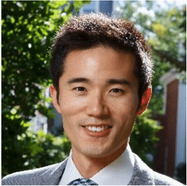
Michael Lee, Doctoral Candidate
Harvard Business School
Email: milee@hbs.edu
Michael Y. Lee is a Doctoral Candidate in Management at Harvard Business School and studies novel organizational designs and how formal structures can be leveraged to foster greater organizational effectiveness. His current research focuses on a novel organizational system called Holacracy that enables organizations to tightly align formal structure with work arrangements and to rapidly iterate this structure when necessary. Michael has served as an engagement leader for the Parthenon Group where he advisedcorporate, private equity, and social sector clients. Michael earned his AB in Social Studies from Harvard University and an MBA from U.C. Berkeley.
Survey Questions
Best possible personal outcome from the conference?
Some new ideas for ethnographic research projects related to entrepreneurship and cultivated meaningful connections with other scholars.
Biggest research challenge you're facing? Can conference attendees help with it? How?
My main challenge is that while I hope to conduct ethnographic research in startups in the near future, my core research is not situated within the entrepreneurship literature. As a result, I feel like I don't know what kinds of research questions are interesting for the entrepreneurship field as a whole that would make for potentially valuable research projects.
In what specific way can the conference best facilitate your research career?
Provide a good overview and insight into the types of core theoretical questions that would be amenable to ethnographic methods.
What aspects of businesses creation, or entrepreneurship, should receive priority from the research community? Why?
I have less of a perspective on this given my previous focus but I am interested in exploring this question during the conference.
What do you understand to be the most significant limitations and strengths of ethnographic research, as applied to business creation/entrepreneurship?
I think the limitations of ethnographic research are always its generalizability. However, I think it can be incredibly powerful for developing new insights and theories, especially around processes and mechanisms. I think these strengths are particularly applicable to entrepreneurship given that the generally small size of nascent firms enables researches to get a grasp of dynamics of the whole even as a single researcher. This is more difficult in larger more mature organizations.
Dawn Lehman
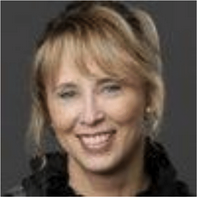
Dawn Lehman, Development Specialist
National Safety Council
Email: dawn.lehman@nsc.org
As an organizational anthropologist and communications specialist, Dawn Lehman conducts translational research to help organizations align to evolving strategic visions, missions, and goals critical to short-and long-term performance. She has helped national nonprofit organizations address issues associated with the complex task of adapting to rapidly changing competition for resources and workforce needs in a challenging economic environment. Dr. Lehman is the co-founder of an award-winning 501 (c) 3 youth volunteer organization that has engaged more than 7,000 young people in service. She has conducted workshops and presented papers on youth empowerment and leadership, career mapping, cultural competency in health care, and organizational culture change.
Esther Leibel
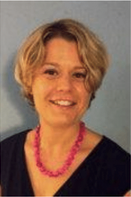
Esther Leibel, Assistant Professor
Boston University
Email: eleibel@bu.edu
Esther Leibelis an Assistant Professor in Strategy and Innovation at Boston University, Questrom School of Business. She use ethnographic methods to identify the micro-processes behind the development of new fields, markets, and movements, as well as the elements underlying institutional variation and heterogeneity of meanings, and practices. In Esther’s dissertation, she brings attention to how the local context shapes microlevel interactions among a field’s actors, and ultimately affects the vocabularies, meanings, and practices used in an emerging field. In addition, Esther offers a framework to help entrepreneurs identify the characteristics of their field and the resources available to them.
Survey Questions
Best possible personal outcome from the conference?
Identify themes and a path for future research projects.
Biggest research challenge you're facing? Can conference attendees help with it? How?
Establish a dialogue with mainstream entrepreneurship scholars re: the way ethnographic research can complement and enhance existing work.
In what specific way can the conference best facilitate your research career?
Networking, idea generation and sharing. Grants and other research funding opportunities.
What aspects of businesses creation, or entrepreneurship, should receive priority from the research community? Why?
The role of the local context, and how it shapes field-level meanings and practices. We know from the institutional literature that logics and discourse are always implemented at the local level, but there is a dearth of studies looking at how local instantiations of meanings, such as practices, end up being different within the same field. By paying attention to how different actors, including entrepreneurs, perceive their institutional context, and howthat leads to the emergence of meanings and practices in a field I contribute to our understanding of heterogeneity within fields.
What do you understand to be the most significant limitations and strengths of ethnographic research, as applied to business creation/entrepreneurship?
One of the limitations lies in the small sample size. However, this is also a strength, because ethnographers deeply engage with the phenomenon they study. Ethnographic findings are more fine-grained and richer compared to large-scale studies.
Derek Lidow

Derek Lidow, Lecturer
Princeton University
Email: dlidow@princeton.edu
Derek has deep experience engaging both academic and entrepreneurial communities in unique ways and at all levels. His successful long-term stints as both a CEO of a large global public semiconductor company (NYSE: IRF) and as founder of a startup (iSuppli) are a rare business combination. While leading iSuppli, the company created novel methodologies and research techniques for capturing and analyzing valuable datasets describing in detail the technology, media, and telecommunications value chains. After iSuppli was sold, Derek was invited by Princeton to be the James Wei Visiting Professor in Entrepreneurship, and then a permanent member of the faculty.
Survey Questions
Best possible personal outcome from the conference?
I would love to see a project like the Princeton Longitudinal Entrepreneurial Observatory [PLEO] stimulate valuable discussion and receive advice and support from attendees.
Biggest research challenge you're facing? Can conference attendees help with it? How?
The role of leadership in entrepreneurial success is tough to measure. How can we best determine the linkage of leadership skills with entrepreneurial outcomes?
In what specific way can the conference best facilitate your research career?
By other attendees signing on as PI's for PLEO.
What aspects of businesses creation, or entrepreneurship, should receive priority from the research community? Why?
We need to understand how founder and TMT actions impact entrepreneurial outcomes because positive entrepreneurial outcomes are so critical for economic growth and social well-being.
What do you understand to be the most significant limitations and strengths of ethnographic research, as applied to business creation/entrepreneurship?
The limitation is that it is expensive and time consuming to conduct ethnographic research on entrepreneurs. The importance is that it is a bottoms-up approach and will yield a wealth of insights into how entrepreneurship actually works or doesn't work.
Timothy De Waal Malefyt
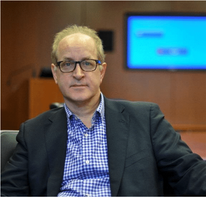
Timothy de Waal Malefyt, Clinical Associate Professor
Fordham University
Email: tmalefyt@fordham.edu
Timothy de Waal Malefyt is a Clinical Associate Professor at the Gabelli School of Business, Fordham University. Previously, he held senior positions in advertising agencies where, as a corporate anthropologist, he applied anthropological and cultural approaches to consumer research for developing brand and strategic insights.Such brands included, AT&T, Cadillac, Campbell’s, eBay, FedEx, Frito-Lay, Gillette, GE, Hyatt, New Balance and Pepsico. His books are Advertising Cultures (2003) Bloomsbury.
Survey Questions
Best possible personal outcome from the conference?
Learning new ways to teach ethnographic practices for business creation, consumer insights and marketing.
Biggest research challenge you’re facing? Can conference attendees help with it?
Students don’t understand the value of ethnographic methods and research. Yes, I’m hoping attendees and overall discussions will help.
In what specific way can the conference best facilitate your research career?
As stated above, I look for fruitful discussion on the topic.
What aspects of businesses creation, or entrepreneurship, should receive priority from the research community? Why?
How ethnographic research leads to insights, the unexpected, and a sense of discovery that can bolster entrepreneurship.
What do you understand to be the most significant limitations and strengths of ethnographic research, as applied to business creation/entrepreneurship?
As mentioned above, the sense of discovery is greatest, but the lack of measurability is its limitation.
Maryann McCabe
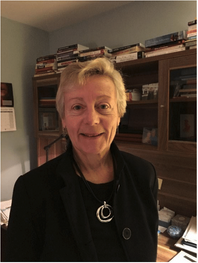
Maryann McCabe, Senior Lecturer
University of Rochester
Email: mm@cultureconnex.com
Maryann McCabe is Senior Lecturer at the University of Rochester. She has been a faculty member of the Review Board for the Kauffman Entrepreneurial Year program for students at the University since its inception in 2005. She is founder and principal of Cultural Connections LLC, a market research consultancy in Rochester NY, and her ethnographic research on consumer behavior has been published in academic books and journals. At the Society for Applied Anthropology, she chairs the business anthropology group. She holds a Ph.D. in anthropology from New York University.
Amisha Miller
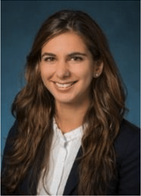
Amisha Miller, Senior Program Officer
Kauffman Foundation
Email: amisha.miller@gmail.com
Amisha Miller is a senior program officer in Research and Policy for the Ewing Marion Kauffman Foundation, where she leads programmatic research focused on “what works” in creating scalable businesses. She previously was a consultant at Mission Measurement, where she worked with nonprofits to measure their impact and create more results-oriented strategies that drive revenue and impact gains. Miller also led the research and evaluation of global development programs, creating practical measurement and operations tools for organizations and clients. Miller has an MSc in Population and Development from the London School of Economics and a BA in History from University of Warwick.
Survey Questions
Best possible personal outcome from the conference?
Sourcing new research projects that can potentially turn into grants.
Biggest research challenge you're facing? Can conference attendees help with it? How?
It's very difficult for the Foundation to understand which ethnographic projects will shed light on questions for the wider field, rather than solely a specific context. We'd love advice on how to do that.
In what specific way can the conference best facilitate your research career?
Identify new projects and get an idea of the state of the field. Also learn more from the best about methodology.
What aspects of businesses creation, or entrepreneurship, should receive priority from the research community? Why?
I think the areas of shifts as companies start and grow are interesting. Kauffman is particularly interested in mindset (as a short-term outcome for many of the grantees we work with), processes in how an idea develops (this seems to be thin in the literature), relationships and trust (seemingly very important when you talk to entrepreneurs but understudied), HR for startups i.e. who should be hired and why (to inform products to help entrepreneurs) and longer-term outcomes, to help us assess what effects support can have on entrepreneurs and founding teams as individuals.
What do you understand to be the most significant limitations and strengths of ethnographic research, as applied to business creation/entrepreneurship?
I'm hoping to learn this answer at the conference. My best estimation from what I've heard is time taken to complete a project, lack of funding, more difficult to publish in certain journals.
Christine Miller
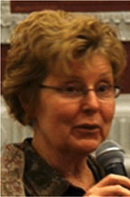
Christine Miller, Associate Clinical Professor
Illinois Institute of Technology, Stuart School of Business
Email: cmille31@iit.edu
Christine Miller works at the intersection of anthropology, business, and design. Her Ph.D. in Anthropology and Management is from Wayne State University where she conducted an ethnographic study of process formalization and the relationship between innovation and formalization at a Tier One automotive supplier. Christine's research interests include socio-technical systems and the ways in which sociality and culture influence the design of new products, processes, and technologies. She also studies technology-mediated communication, knowledge flows within pluridisciplinary groups and the emergence of technology-enabled collaborative innovation networks. Christine is currently a member of a NSF funded interdisciplinary team studying the ethical culture of STEM research groups.
Survey Questions
Best possible personal outcome from the conference?
Have an engaged network of people engaged in integrating ethnography into mixed methods entrepreneurship research.
Biggest research challenge you're facing? Can conference attendees help with it? How?
Finding literature and people who have or are interested in studying ethics in entrepreneurship.
In what specific way can the conference best facilitate your research career?
Learn about what other researchers are doing (i.e., studies, methods, theory, education) and joining an active network of researcher/practitioners.
What aspects of businesses creation, or entrepreneurship, should receive priority from the research community? Why?
Inspiration & Motivation, pre-business plan design process, entrepreneurship/innovation networks.
Siobhán O'Mahony
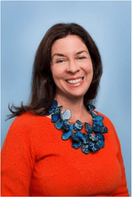
Siobhán O’Mahony, Associate Professor
Boston University
E-mail: Siobhan.omahoney@gmail.com
Siobhán O’Mahony is a tenured Associate Professor in Strategy and Innovation at the Boston University Questrom School of Business. Professor O'Mahony studies how collective technical and creative projects organize. In her research, Professor O’Mahony has examined high technology contractors, open source programmers, music producers, scientists and engineers, internet startups and corporate consortiums. She is interested in how people organize for innovation, creativity and growth without replicating the bureaucratic structures they strive to avoid. Much of her work examines how innovative projects manage the tension between maintaining open, participatory and pluralistic organizing approaches and preserving project boundaries and contributing to corporate goals.
Survey Questions
Best possible personal outcome from the conference?
To help gain and give confidence to others to continue with this line of important work.
Biggest research challenge you're facing? Can conference attendees help with it? How?
How to study 30 firms in one incubator and track the ones that completed the program?
In what specific way can the conference best facilitate your research career?
Interested in connecting with others doing this kind of work.
What aspects of businesses creation, or entrepreneurship, should receive priority from the research community? Why?
Business idea refinement and iteration how do entrepreneurs make progress on their unproven ideas.
What do you understand to be the most significant limitations and strengths of ethnographic research, as applied to business creation/entrepreneurship?
Always hard with a small n, need to look for opportunities to amp up your N even with ethnography.
U. Ejiro Onomake

Umoloyouvwe Onomake, Doctor
University of Sussex
Email: ueoonomake@gmail.com
U. Ejiro O. Onomake has worked in both private and public sectors and lived in various parts of the world including Asia, North America and West Africa. She has multiple undergraduate and graduate degrees in social science and business, including an MBA. Ejiro recently completed a PhD in anthropology where she examined the elite experiences and aspirations of Nigerians who seek to make good on the promise of Nigerian-Chinese relationships within big business, entrepreneurship, and education. Her areas of expertise and interests include international business; international development, transnationalism, intersectionality, social media, and British television.
Survey Questions
Best possible personal outcome from the conference?
Book deal connection and networking.
Biggest research challenge you're facing? Can conference attendees help with it? How?
Time.
In what specific way can the conference best facilitate your research career?
In connecting me with potential research opportunities.
What aspects of businesses creation, or entrepreneurship, should receive priority from the research community? Why?
The intersectional links between culture, gender, and class and business creation/entrepreneurship.
What do you understand to be the most significant limitations and strengths of ethnographic research, as applied to business creation/entrepreneurship?
Limits-potential limits to applicability Strengths-the robust level of data.
Ana Maria Peredo
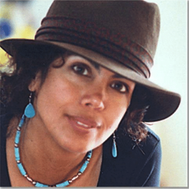
Ana Maria Peredo, Doctor
University of Victoria
Email: aperedo@uvic.ca
Ana Maria Peredo is a Professor in the School of Environmental Studies at the University of Victoria, in Canada. She is former Director of the Centre for Co-operative and Community-Based Economy, and Professor in the Peter B. Gustavson School of Business. Drawing on her background in Social and Cultural Anthropology, and experience as a journalist in her native Peru, Dr. Peredo’s research focuses on the role of collective, co-operative enterprise in fostering sustainable communities, especially among impoverished peoples. She has a strong interest in community alternatives and participatory action research among Indigenous people.
David Platzer
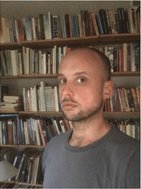
David Platzer, PhD Candidate and Experience Researcher
John Hopkins University and Adobe
Email: dlp@jhu.edu
David is a PhD candidate in anthropology at Johns Hopkins and an Experience Researcher with Adobe's Design unit. His dissertation research is an ethnographic examination of autism focused on entrepreneurship and social entrepreneurship in Silicon Valley andBangalore, India. In his work for Adobe, he has conducted UX research for XD Studio Design Labs, a "intrapreneurial" experimental products team that is run like a start-up within the larger organization. He is currently the lead facilitator of the Autism Job Club, in San Francisco, and sits on the board of trustees for the special-education social enterprise Tech Kids Unlimited, in New York.
Survey Questions
Best possible personal outcome from the conference?
I would like to further refine my understanding of the applications (and limits) of ethnography as a research methodology, both relative to industry work and academic research. I'm also interested in exploring in discussing a more fluid relationship between industry and academia.
Biggest research challenge you're facing? Can conference attendees help with it? How?
Both in terms of academic research and my work for Adobe Design, recruitment/access are extremely difficult. Especially with start-ups that are concerned about IP being poached etc., it can be nearly impossible to get permissions. I'd love to brainstorm workarounds to this predicament.
In what specific way can the conference best facilitate your research career?
Allowing me to explore institutional dynamics vis-a-vis career development (as someone who wants to study business/organizations, but would like a more fluid institutional home, between academia and industry) and also the problems of permissions/recruitment/access mentioned above.
What aspects of businesses creation, or entrepreneurship, should receive priority from the research community? Why?
There is such a paucity of research that I don't think it makes sense to limit things just yet. That said, I'd personally love my research on how entrepreneurialism as a worldview is formed, maintained, and challenged in the development of businesses, most of which fail. In other words, what is the role/function of failure in the constitution of entrepreneurial subjectivity.
What do you understand to be the most significant limitations and strengths of ethnographic research, as applied to business creation/entrepreneurship?
There is so little research, from what I've seen, that it's really impossible to answer this question.
Melea Press
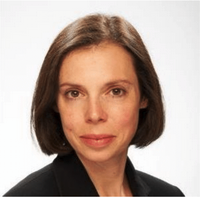
Melea Press, Associate Professor
Skema Business School
Email: melea.press@skema.edu
Melea Press studies markets and market systems, broadly speaking. She thrives on interdisciplinary work and has had the great fortune to work with plant and soil scientists, engineers, social activists, and businesspeople. Melea is interested in support structures that affect how people develop strategy, manage and run their businesses, and access and interact with the marketplace. An extension of her marketing research is a foray into looking at entrepreneurship and business incubators. She is interested in the networks of support that facilitate idea and business development, as well as the personal and professional journey to success/failure.
Survey Questions
Best possible personal outcome from the conference?
Make contacts with others doing entrepreneurial research. I'm starting a big research project and would love some input/collaboration.
Biggest research challenge you're facing? Can conference attendees help with it? How?
I would love to know more about the limitations/challenges/push back people face when trying to use ethnographic approaches in entrepreneurship. Is it the same as everywhere else or are there particular issues in this context?
In what specific way can the conference best facilitate your research career?
Finding colleagues for collaboration would be ideal.
What aspects of businesses creation, or entrepreneurship, should receive priority from the research community? Why?
Support structures. What are the factors that legitimate certain actions/businesses/ideas?
What do you understand tobe the most significant limitations and strengths of ethnographic research, as applied to business creation/entrepreneurship?
It limits the numbers of people you can talk to, but allows for holistic understanding of issues. Same as issues with ethnographic approaches in general. Super powerful but must be considered in the broader context (business world, social and economic, emotional, cultural).
Marlo Rencher
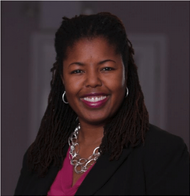
Marlo Rencher, Vice President
Cleary University
Email: mrencher@cleary.edu
Dr. Marlo Rencher is an entrepreneur and educator with deep experience in startup and small business development. She worked for more than seven years in Detroit tech incubators and entrepreneurial development agencies. She is Vice President, Innovation, Entrepreneurship and Diversity at Cleary University. A Michigan State University graduate with a BA in marketing, Marlo also has a MBA from the Ross Business School at the University of Michigan, and a Ph.D. in business anthropology from Wayne State University. Her research interests exist at the intersection of entrepreneurship, design, technology and culture. Marlo has founded or co-founded three tech companies.
Survey Questions
Best possible personal outcome from the conference?
I would like to make good connections with potential collaborators.
Biggest research challenge you're facing? Can conference attendees help with it? How?
Research is not a priority at my institution. I don't think that the other attendees can help, nor is it necessary for them to do so.
In what specific way can the conference best facilitate your research career?
If I get committed interest from a funder about my research interest, it could be quite helpful.
What aspects of businesses creation, or entrepreneurship, should receive priority fromthe research community? Why?
The first 5 years (the Valley of Death) is an important subject of research because so many businesses fail during that time. There is not much research that has been done to date.
What do you understand to be the most significant limitations and strengths of ethnographic research, as applied to business creation/entrepreneurship?
Limitation: requires significant investment of time; Strengths: ethnography is adaptable and evolving; it provides profound insights that might not be accessible through other methods.
Paul Reynolds
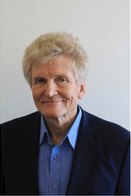
Paul Reynolds, Professor
Retired
Email: pauldavidsonreynolds@gmail.com
Degrees were earned in engineering [U. Kansas, BS, 1960], and from Stanford University in business administration [MBA, 1964], social psychology [MA, 1966], and sociology [PhD, 1969]. After two decades in three sociology departments, Reynolds shifted focus to firm creation and growth and was subsequently on the faculty of five business schools. He was a coordinating principal investigator for the two US Panel Studies of Entrepreneurial Dynamics. This experience led to the role as the founding coordinating principal investigator of the Global Entrepreneurship Monitor initiative; the GEM project has now collected harmonized data on the prevalence of business creation in a hundred countries.
Survey Questions
Best possible personal outcome from the conference?
Funding for multi-mode longitudinal study of business creation.
Biggest research challenge you're facing? Can conference attendees help with it? How?
Funding for research.
In what specific way can the conference best facilitate your research career?
Expand inventory of issues to explore in successful business creation.
What aspects of businesses creation, or entrepreneurship, should receive priority from the research community? Why?
Increasing probability of developing profitable new firms and lowering the investments in time and money. Constant flow of new ventures a major contribution to economic growth and adaptation, but reducing the costs would be a major benefit.
What do you understand to be the most significant limitations and strengths of ethnographic research, as applied to business creation/entrepreneurship?
Major strength is detailed understanding of how start-up teams deal with shifting context and conditions. Major limitation is the high cost and small samples, which limits general application of findings.
Dawn Rivers

Dawn Rivers, Doctoral Candidate
University of North Carolina at Chapel Hill
Email: deeare2@live.unc.edu
Dawn R. Rivers is a doctoral student in the Department of Anthropology at the University of North Carolina at Chapel Hill. She received her B.A. summa cum laude in economics and anthropology from Hartwick College in Oneonta, NY. Prior to returning to school, Ms. Rivers was publisher of trade paperback fiction and non-fiction books, electronic newsletters and podcasts under her own microcorporation. She is divorced and has four adult children.
Survey Questions
Best possible personal outcome from the conference?
Connections with potential dissertation funding; guidance for completing funding applications; professional contacts among conference attendees.
Biggest research challenge you're facing? Can conference attendees help with it? How?
Locating interlocutors in currently my biggest challenge. I don't expect assistance with this particular challenge from this conference.
In what specific way can the conference best facilitate your research career?
My best case results would occur if I was able to leave the conference with a good handle on non-standard funding sources for my field (anthropology). In addition, the networking and contact I can make through this conference are likely to be useful as I move forward in my career.
What aspects of businesses creation, or entrepreneurship, should receive priority from the research community? Why?
I think there are two moments in the story of any business that are extremely important to understand. First is the question of why an individual chooses to create a business and what factors are involved in going from dream to reality. Second and possibly more important, we need to understand the elements that cause new businesses to transition from non-employer businesses to employer firms. Most businesses stop at the non-employer phase. We need to know more about the relative few that make that transition.
What do you understand to be the most significant limitations and strengths of ethnographic research, as applied to business creation/entrepreneurship?
Human beings rarely, if ever, make decisions in accordance with economic theory. Thus, economics is not the best discipline from which to study the *people* who start businesses and, particularly, why those people do the things they do and make the choices they make. Ethnographic research addresses the huge gaps that exist between economic theory and human non-monetary motivation. At the same time, ethnographic research requires relatively small sample sizes in any given study. Because of this, it does not lend itself to large sample sizes and statistical analysis.
Peter Rosa
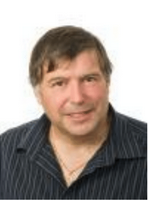
Peter Rosa, Professor
University of Edinburgh Business School
Email: peter.rosa@ed.ac.uk
Peter Rosa, B.A. and PhD, Anthropology, (Dunelm) is the George David Professor of Entrepreneurship and Family Business at the University of Edinburgh, Business School, Scotland. He is also a Visiting Professor at Makerere University Business School, Uganda. He has special interests in portfolio entrepreneurship, family business and entrepreneurship in developing countries.
Martin Ruef

Martin Ruef, Professor
Duke University
Email: martin.ruef@duke.edu
Martin Ruef is the Jack and Pamela Egan Professor of Entrepreneurship and Chair of the Department of Sociology at Duke University. His research addresses the social context of entrepreneurship from both a contemporary and historical perspective. He has authored or co-authored several books on entrepreneurship and institutional transformation, including The Entrepreneurial Group, Organizations Evolving (with Howard Aldrich), Institutional Change and Healthcare Organizations (with W. Richard Scott and colleagues), and Between Slavery and Capitalism.
Survey Questions
Best possible personal outcome from the conference?
New ideas at the intersection of ethnography and entrepreneurship.
In what specific way can the conference best facilitate your research career?
Help my junior collaborators who are doing multi-method studies.
What aspects of businesses creation, or entrepreneurship, should receive priority from the research community? Why?
Entrepreneurship in developing countries.
What do you understand to be the most significant limitations and strengths of ethnographic research, as applied to business creation/entrepreneurship?
Limitations include a lack of attention to theory or research design (which is just as important as it is for quant studies!).
Paromita Sanyal
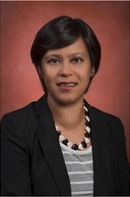
Paromita Sanyal, Associate Professor
Florida State University
Email: psanyal@fsu.edu
Paromita Sanyalis an Associate Professor of Sociology at Florida State University specializing in Development, Gender, and Economic Sociology. Her research focuses on microfinance programs in the developing world that provide small, uncollateralized loans to the poor and unbanked and claim to promote women’s entrepreneurship and empowerment. Her book on this subject titled Credit to Capabilities: A Sociological Study of Microcredit Groups in India was published by Cambridge University Press. It won the outstanding book award in 2015 from the ASA section on the Sociology of Development. Articles on this topic have appeared in the American Sociological Review and Qualitative Sociology.
Survey Questions
Best possible personal outcome from the conference?
Will lead to developing and sharpening ideas for the next research project.
Biggest research challenge you're facing? Can conference attendees help with it? How?
Whether to research urban microfinance in developing country context or launch an ethnographic study of FSU's new School of Entrepreneurship to understand how entrepreneurs are institutionally created and trained.
In what specific way can the conference best facilitate your research career?
By helping me to see which research project (urban microfinance versus school of entrepreneurship) has the most academic potential.
What do you understand to be the most significant limitations and strengths of ethnographic research, as applied to business creation/entrepreneurship?
Busy entrepreneurs might be less inclined to give up time for interviews and less open to non-participant observation. Strength would be to reveal the processes, mechanisms and interactions behind generating business ideas and organizations.
Agnes Sohn
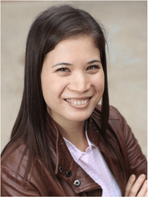
Agnes Sohn, Doctoral Candidate
University of Illinois at Urbana-Champaign
Email: asohn5@illinois.edu
Agnes Sohn is a doctoral candidate in Anthropology at the University of Illinois at Urbana-Champaign. With funding from a Fulbright-Hays DDRA Fellowship, she completed fourteen months of ethnographic field research in South Korea, where she worked among young adult migrants who move out of the capital city and the corporate world into the countryside, where they engage in a variety of different entrepreneurial projects. She takes a close look at the motivations for leaving the corporate world and the alternative structures and aspirations that South Korean millennials build into their new business ventures and lifestyle patterns in their new semi-rural locale.
Survey Questions
Best possible personal outcome from the conference?
My best possible personal outcome from this conference is to learn more about how others are doing ethnographic analyses of start-ups and small businesses and to make relevant connections with people who have similar questions as me.
Biggest research challenge you're facing? Can conference attendees help with it? How?
My biggest research challenge is with coming up with models for studying entrepreneurship. I have done in-depth one on one interviews and participant observation. But what other tools might be out there? I would like to talk to other attendees about their research methods and also their modes of analysis.
In what specific way can the conference best facilitate your research career?
By presenting relevant material for discussion and by creating opportunities for people to talk to one another about their projects.
What aspects of businesses creation, or entrepreneurship, should receive priority from the research community? Why?
I think the ethnographic study of entrepreneurship should be the focus of this conference. How can we use ethnographic methods to unpack how and why businesses are created and why some places, business models or entrepreneurs are more successful than others? I think this kind of focus will bring academics and industry researchers together to make the conference useful for all.
What do you understand to be the most significant limitations and strengths of ethnographic research, as applied to business creation/entrepreneurship?
The strength of ethnographic research for studying business creation/entrepreneurship is in the depth and thoroughness of its methods. Ethnographers could potentially trace the entire process of business creation from inception to growth and expansion, etc. through observation and in-depth interviews, revealing a lot of qualitative information about motivations, successes, pitfalls, and complications in the business creation cycle. Ethnography also uncovers more in depth information about the political economy of the contexts in which these businesses are being formed. The limitations of ethnographic research is that it sacrifices in breadth what it gains in depth. You would needa whole team of researchers to do a broad enough study to say something really meaningful about larger trends/patterns.
Susan Squires
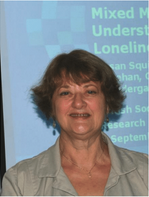
Susan Squires, Professor
University of North Texas
Email: susan.squires@unt.edu
Susan Squires, Ph.D. is currently a professor in the Department of Anthropology at the University of N. Texas. Before joining UNT, she spent over twenty years in practice designing and conducting ethnographic research for a range of not-for-profit and private sector institutions. Her co-edited book Creating Breakthrough Ideas (2002), documents her research theory and methodology.
Survey Questions
Best possible personal outcome from the conference?
Making connections with other innovators.
Biggest research challenge you're facing? Can conference attendees help with it? How?
Convincing organizations that qualitative ethnographic research is an extraordinary method for discovery.
In what specific way can the conference best facilitate your research career?
Allowing others to get to know me and my work.
What aspects of businesses creation, or entrepreneurship, should receive priority from the research community? Why?
Using "discovery" research at the "fuzzy" front end, will help to eliminate the "fuzzy."
What do you understand to be the most significant limitations and strengths of ethnographic research, as applied to business creation/entrepreneurship?
It is a challenge to make the case for a qualitative method in an atmosphere in which numbers are almost magical.
Isabell Stamm
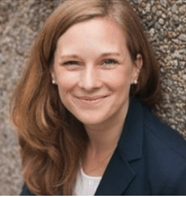
Isabell Stamm, Researcher
Technical University Berlin
Email: isabell.stamm@tu-berlin.de
Dr. Isabell Stamm is a researcher in the Department for Sociology at the Technical University in Berlin. Recently returning from her Postdoc stay at the University of California Berkeley, USA, she is heading a research group on entrepreneurial group dynamics funded by Volkswagen Foundation. In addition, her research interests include entrepreneurial families, work-family-intertwinement, and cooperative research methods.
Survey Questions
Best possible personal outcome from the conference?
Input on methodological design of current research project.
Biggest research challenge you're facing? Can conference attendees help with it? How?
Field Access -Yes -with their previous experience.
In what specific way can the conference best facilitate your research career?
Give a platform for my current research work.
What aspects of businesses creation, or entrepreneurship, should receive priority from the research community? Why?
Focus on the collective actors of entrepreneurship.
What do you understand to be the most significant limitations and strengths of ethnographic research, as applied to business creation/entrepreneurship?
Limitations: small scope and risk in selecting the cases as future development of the venture is hardly predictable; Strengths: dynamic approach that acknowledges the involvement of multiple individuals and their stakes in the venture.
Alex Stewart

Alex Stewart, Professor
Memorial University of Newfoundland
Email: alex.stewart@marquette.edu
Alex Stewart is Professor and Chairholder in Entrepreneurship at Memorial University of Newfoundland, following 17 years at Marquette University. He is a former Chair of the Entrepreneurship Division of the Academy of Management, Program Chair and Co-Convener of the Organization Science Winter Conference, and Chair of the Family Enterprise Research Conference. Unusual for being an anthropologist in a management department, he looks forward to conducting ethnographic research on entrepreneurship in Newfoundland. His publications include an ethnographic book on an entrepreneurial division, Team Entrepreneurship, and a treatise on what makes for good ethnographic method, The Ethnographer’s Method.
Patricia Sunderland
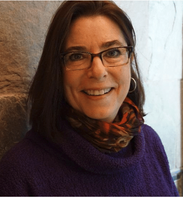
Patricia Sunderland, President
Cultural Research and Analysis
Email: patti@crastudio.com
Patricia Sunderland is a specialist in the anthropological, ethnographic and cultural analysis of consumer worlds. Founder and president of Cultural Research & Analysis (www.CRAstudio.com), she is also first author of Doing Anthropology in Consumer Research and co-editor of the 2014 Handbook of Anthropology in Business. Patti’s analyses have provided the strategic insight for the successful makeover of brands and retail environments as well as contributed to the launch of new advertising, products, and brand strategies for many clients including Citibank, Nissan, and PepsiCo. Patti has a Ph.D. in Cultural and Social Psychology and an M.Phil degree in Anthropology from New York University.
Survey Questions
Best possible personal outcome from the conference?
New research idea and collaboration combining ethnographic and quantitative research in entrepreneurship.
Biggest research challenge you're facing? Can conference attendees help with it? How?
Oftentimes quantitative methods show "what" and "how much" but not "why.”
In what specific way can the conference best facilitate your research career?
In increasing my understanding of ethnographic research and how to use it.
What aspects of businesses creation, or entrepreneurship, should receive priority from the research community? Why?
Understanding how contextual factors contribute to (successful) entrepreneurship and how. Important because it is malleable and we know too little.
Greg Urban
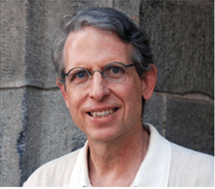
Greg Urban, Professor
University of Pennsylvania
Email: gurban@sas.upenn.edu
Greg Urban is the Arthur Hobson Quinn Professor of Anthropology and former Chair of the Department of Anthropology at the University of Pennsylvania. A specialist in linguistic and cultural anthropology, Urban studies the processes of cultural motion, with a focus on the forces that impel that motion through space and time. He has done extensive research among indigenous populations in Brazil, and is now also interested in modern business corporations as institutional loci for the creation of new culture. He received his B.A., M.A., and Ph.D. in anthropology from the University of Chicago.
Mirjam Van Praag
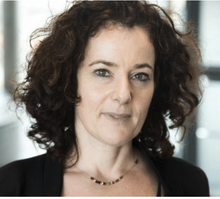
Celine Mirjam van Praag, Professor
Copenhagen Business School
Email: mvp.ino@cbs.dk
Prof. Dr. C. Mirjam van Praag is Maersk Mc-Kinney Møller Professor of Entrepreneurship at Copenhagen Business School, Department of Innovation and Organizational Economics. Besides she holds an unpaid position at the Amsterdam Business School of the University of Amsterdam. Van Praag’s research studies Economics of Entrepreneurship (e.g. Human Capital, Teams, Entrepreneurship and the Household) often using (field or natural) experiments. Apart from entrepreneurship, she is also an active researcher in the field of Personnel Economics (performance measurement andrewards) and Behavorial Economics. Van Praag is a research fellow of the CEPR, IZA, Tinbergen Institute, ACE and ACLE as well as a member of Academia Europaea.
Survey Questions
Best possible personal outcome from the conference?
New research idea and collaboration combining ethnographic and quantitative research in entrepreneurship.
Biggest research challenge you're facing? Can conference attendees help with it? How?
Oftentimes quantitative methods show "what" and "how much" but not "why.”
In what specific way can the conference best facilitate your research career?
In increasing my understanding of ethnographic research and how to use it.
What aspects of businesses creation, or entrepreneurship, should receive priority from the research community? Why?
Understanding how contextual factors contribute to (successful) entrepreneurship and how. Important because it is malleable and we know too little.
Katie Vizenor
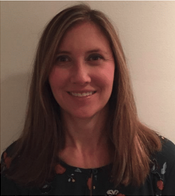
Katie Vizenor, Research Manager
World Employment Research Council
Email: kvizenor@gmail.com
Katie Vizenor is a practicing anthropologist and information scientist and the Research Manager for the Worldwide Employment Relocation Council. She develops and disseminates research and information resources on global workforce mobility as well as talent recruitment,development and retention. She holds a PhD in Anthropology from University at Buffalo and a Masters of Library Science from the iSchool at University of Maryland-College Park. She lives in Reston, Virginia with her husband and daughter.
Survey Questions
Best possible personal outcome from the conference?
Understanding of what tools, resources and strategies can help identify pockets of entrepreneurial activity.
Biggest research challenge you're facing? Can conference attendees help with it? How?
I am hoping that I can be a resource to members on how to build a set of resources to help track and identify entrepreneurship.
In what specific way can the conference best facilitate your research career?
I would like to understand specific projects and initiatives need strategic information collection using data resources, tracking populations, etc.
What aspects of businesses creation, or entrepreneurship, should receive priority from the research community? Why?
Early identification of pockets of innovation, what kinds of environments foster creativity and business creation, what practices hinder.
What do you understand to be the most significant limitations and strengths of ethnographic research, as applied to business creation/entrepreneurship?
Does not scale, entrepreneurship and business creation is very specific to the rules and regulations of a specific location.
Noam Wasserman
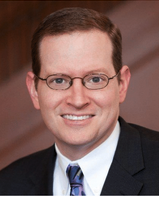
Noam Wasserman, Professor and Founding Director
University of Southern California
Email: noam.wasserman@usc.edu
Noam Wasserman is the founding director of USC’s Founder Central initiative. Before returning home to L.A., he was a professor at Harvard Business School for 13 years. His book, The Founder’s Dilemmas: Anticipating and Avoiding the Pitfalls That Can Sink a Startup, was an Amazon #1 bestseller in Management, and won the Academy of Management’s Impact on Practice award. Noam created and taught HBS’s most popular entrepreneurship elective, “Founder’s Dilemmas.” Inc. Magazine named it one of the top ten entrepreneurship courses in the country and it won the Academy of Management’s Innovation in Entrepreneurship Pedagogy award.
Survey Questions
Best possible personal outcome from the conference?
New ideas for how to get deeper insights into founders' dilemmas, and new contacts with people who can help us get them.
Biggest research challenge you're facing? Can conference attendees help with it? How?
Having the fresh eyes to see big new questions to tackle.
In what specific way can the conference best facilitate your research career?
Help me meet people with different (yet complementary) skills and perspectives from mine.
What aspects of businesses creation, or entrepreneurship, should receive priority from the research community? Why?
Sensing an opportunity, realistically anticipating the toughest challenges faced when pursuing one, dealing psychologically with the most difficult days as a founder.
What do you understand to be the most significant limitations and strengths of ethnographic research, as applied to business creation/entrepreneurship?
Strength: New insights we can't dream up from our armchairs. Limitation: Ability to defend conclusions as rigorous and generalizable.
Princeton Kauffman Conference 2017 home | Agenda | Materials